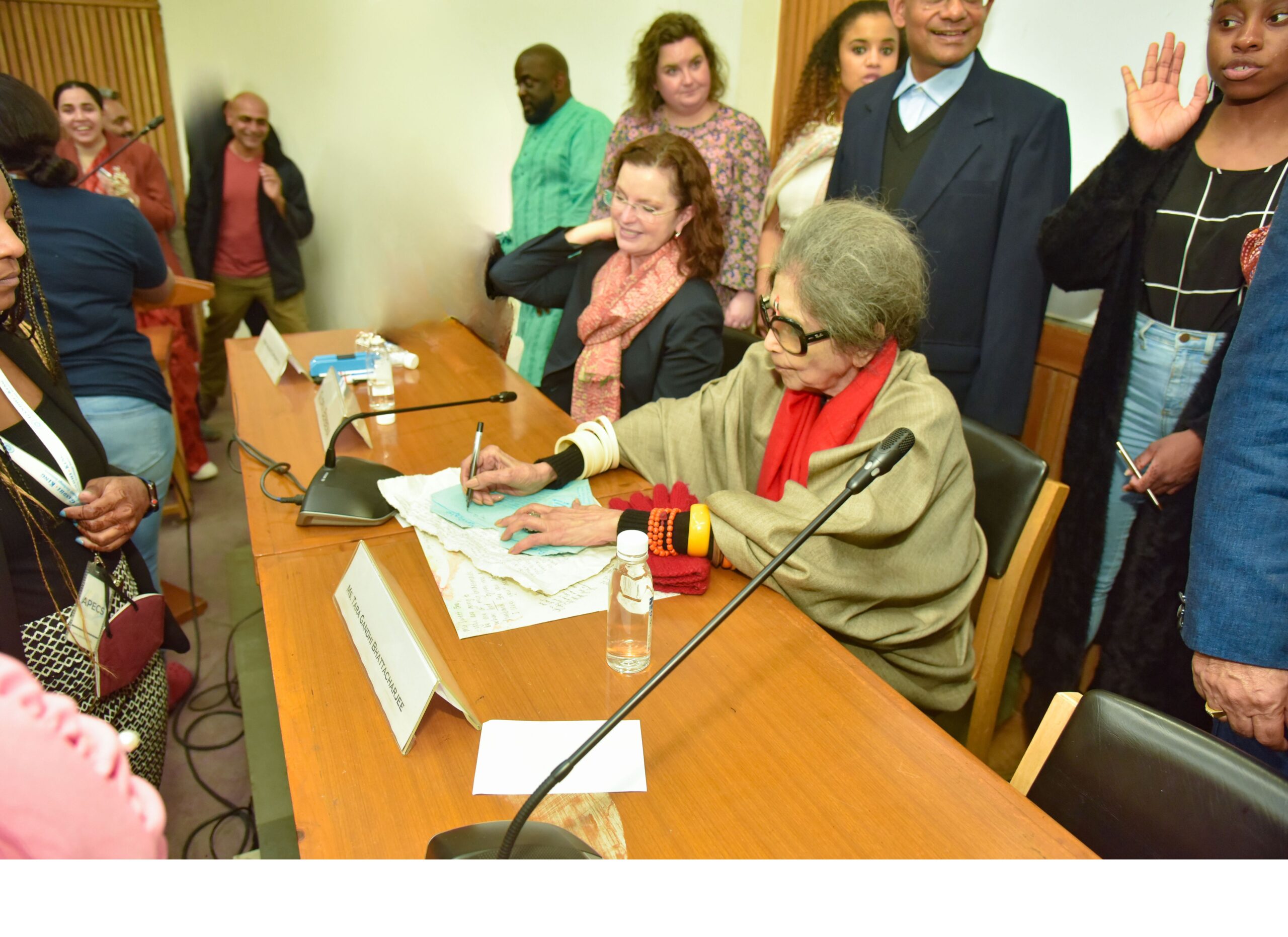Gujarat Vidyapith
In an era where the pursuit of social justice, equity, and cultural regeneration is paramount, aligning educational programs with the legacies of Mahatma Gandhi and Dr. Martin Luther King Jr. is relevant and necessary. The Learn, Liberate, and Lead, focusing on exploring the lives of these two great leaders and fostering social justice through education, finds a natural synergy with the objectives of Gujarat Vidyapith Ahmedabad. This blog explores how these two visions converge to create a powerful framework for nurturing future leaders committed to the ideals of non-violence, social equity, and cultural sensitivity.
Exploring the Life and Works of Gandhi and King
The Learn, Liberate, and Lead is designed to help participants dig deeply into the philosophies and practices of Mahatma Gandhi and Dr. Martin Luther King Jr. This exploration is not merely academic; it is a journey into the hearts of two leaders who shaped the world through their commitment to non-violence and social justice. Participants are encouraged to examine the social, cultural, and historical outcomes of their work, making connections to contemporary issues of inequality and injustice.
This objective resonates profoundly with the mission of Gujarat Vidyapith, an institution founded by Mahatma Gandhi himself in 1920. The Vidyapith aims to prepare individuals with the character, ability, culture, and conscientiousness necessary to lead movements for national regeneration in line with Gandhi’s ideals. By focusing on the study of Gandhi and King, the program aligns with Vidyapith’s emphasis on truth, non-violence, and the eradication of social evils like untouchability.
Socially Engaged Art as a Medium for Learning and Liberation
The Learn, Liberate, and Lead uses socially engaged art activities as a tool to interpret both academic and experiential learning components. This creative approach not only enhances understanding but also empowers participants to express their interpretations of Gandhi’s and King’s teachings in ways that resonate on a personal and societal level. Art, in this context, becomes a form of liberation, enabling participants to explore complex social issues and advocate for change.
This objective echoes the Vidyapith’s commitment to using non-violent means for social regeneration. Just as the Vidyapith emphasizes the importance of hand-spinning and khadi as symbols of self-reliance and national pride, the program’s use of art as a socially engaged practice fosters a sense of cultural identity and community responsibility. Both approaches underscore the power of non-violent tools—be the art or khadi—to inspire and lead social movements.
Developing Self-Reflection, Anti-Bias Skills, and Leadership Through a Multicultural Lens
At the heart of the Learn, Liberate, and Lead is the development of critical skills such as self-reflection, culturally sensitive communication, and leadership through a multicultural lens. These are not just academic skills; they are the tools necessary for participants to become effective advocates for social justice in their communities and beyond. The program’s focus on anti-bias skills and cultural sensitivity is essential for fostering leaders who can navigate and challenge the complexities of a diverse world.
Gujarat Vidyapith’s objectives are closely aligned with these goals. The Vidyapith places a strong emphasis on education that is rooted in the needs of village dwellers, recognizing that the growth of a nation depends on the development of its rural areas. By prioritizing vocational training, the Vidyapith ensures that students are equipped with practical skills that are culturally and economically relevant, while also instilling a deep sense of responsibility towards the nation’s most marginalized communities.
Furthermore, the Vidyapith’s commitment to complete tolerance of all established religions and its focus on physical exercise and manual work is foundational to developing well-rounded, conscientious leaders. These values are mirrored in the Learn, Liberate, and Lead program’s emphasis on self-reflection and leadership, which encourages participants to engage with diverse perspectives and take action in their communities.
Conclusion: A Convergence of Visions
The alignment between the Learn, Liberate, and Lead program and the objectives of Gujarat Vidyapith is a testament to the enduring relevance of Gandhi’s and King’s legacies. Both initiatives seek to cultivate leaders who are not only intellectually capable but also morally grounded, culturally aware, and committed to non-violent social change. By exploring the life and works of these two great leaders, engaging in socially connected art activities, and developing essential leadership skills, participants in the Learn, Liberate, and Lead program are equipped to continue the work of Gandhi and King in today’s world.
As we look to the future, the collaboration between these educational visions promises to produce a generation of leaders who are prepared to tackle the challenges of social injustice, cultural division, and economic inequality with the same courage and conviction that defined Gandhi and King. Together, they will lead the way toward a more just, equitable, and peaceful world.




